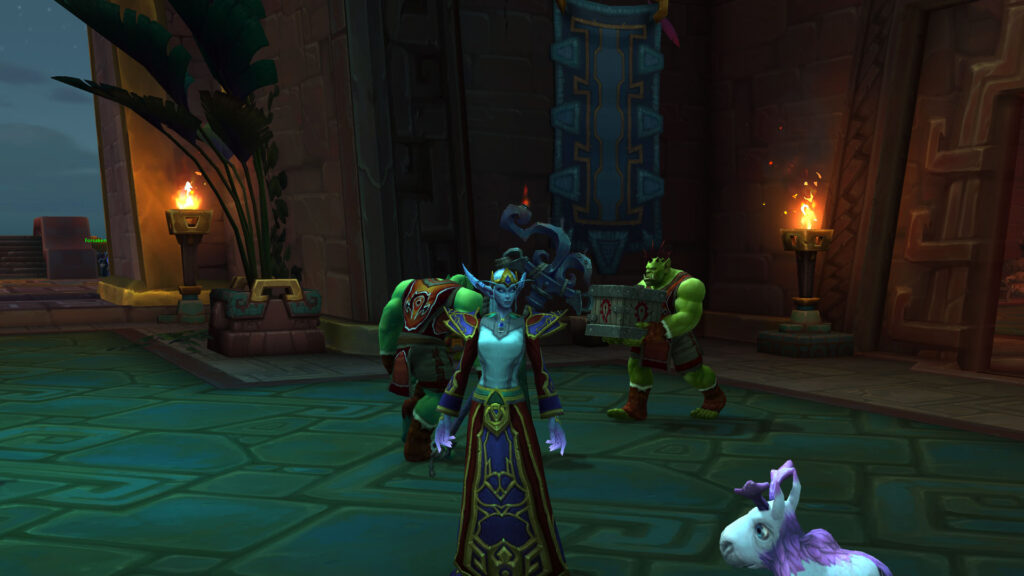
Embracing the arcane, a Nightborne mage stands poised in the Great Seal, radiating mystical prowess in the enchanting world of World of Warcraft.
World of Warcraft: Mental Health Benefits
In the realm of online gaming, World of Warcraft (WoW) stands as a behemoth, captivating millions of players worldwide with its immersive gameplay and expansive virtual world. While often criticized for its addictive nature, WoW has also emerged as an unexpected ally in the realm of mental health. In this article, we will delve into the intricate relationship between World of Warcraft and mental health, exploring both the potential benefits and challenges associated with the game.
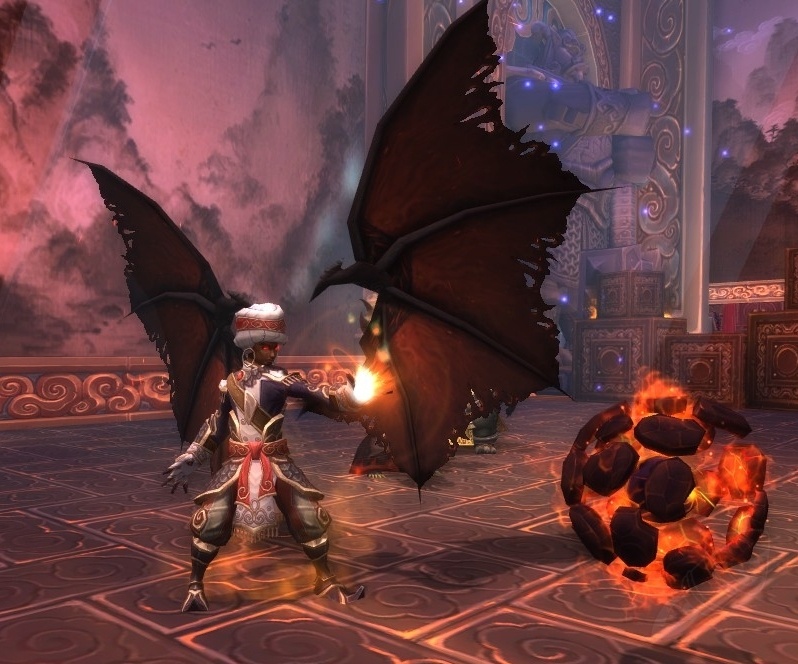
The Therapeutic Power of Azeroth
Community and Social Connection
One of the most prominent aspects of WoW that contributes to mental well-being is its strong sense of community. In a world where social isolation is a growing concern, WoW provides a platform for individuals to connect with like-minded players from around the globe. Guilds, raids, and group activities foster a sense of belonging, reducing feelings of loneliness and alienation.
Studies have shown that social connections are integral to mental health, and WoW serves as a unique space where individuals can forge meaningful relationships. These connections can extend beyond the virtual realm, as many players build lasting friendships and even meet in person. For some, WoW becomes a lifeline, offering a supportive community that understands and accepts them.
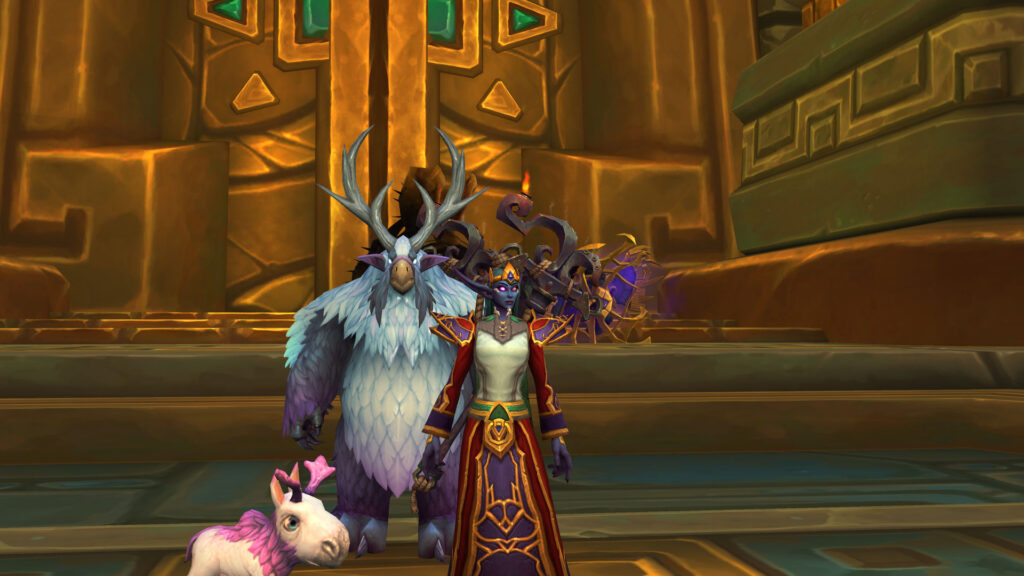
Escapism and Stress Relief
Life can be demanding, and stress is an omnipresent factor for many individuals. WoW offers an escape, letting players immerse in a fantasy realm, temporarily distancing themselves from real-life stressors. Quests, exploration, and battling mythical creatures in WoW offer stress relief, serving as a break from everyday challenges.
Escapism, when done in moderation, can be a healthy coping mechanism. WoW’s immersive environment allows players to redirect their focus, promoting relaxation and a sense of accomplishment. The game’s rich narrative and engaging gameplay create a space where players can temporarily detach from their real-world concerns.
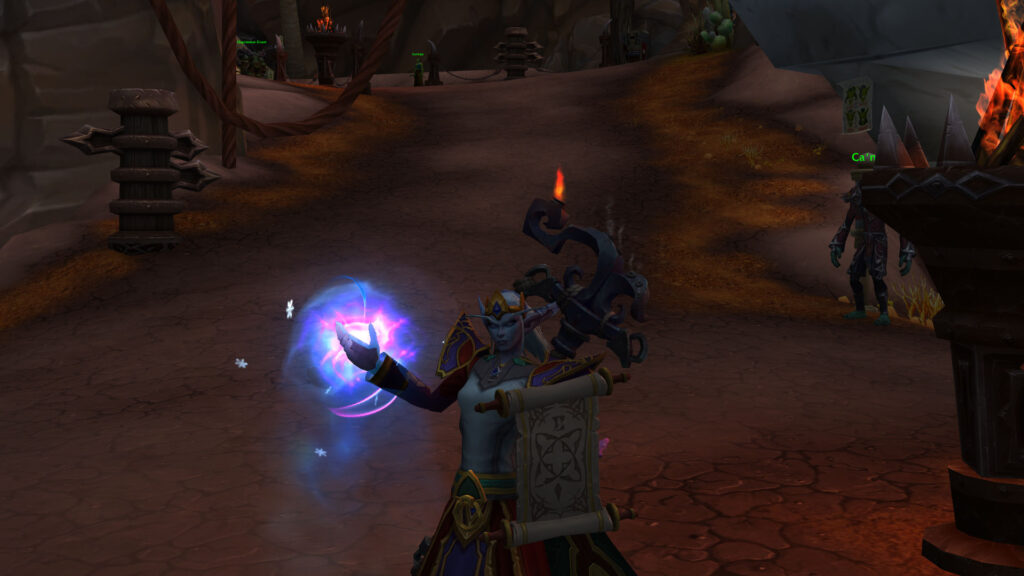
Sense of Achievement and Purpose
One of the fundamental aspects of mental well-being is the sense of achievement and purpose. WoW is designed to provide players with a constant stream of challenges, whether it be defeating powerful bosses, completing intricate quests, or mastering complex in-game systems. The game’s reward structure and progression mechanics contribute to a tangible sense of accomplishment.
For individuals struggling with low self-esteem or a lack of purpose, WoW offers a structured environment where success is achievable through dedication and skill development. The satisfaction derived from overcoming challenges in Azeroth can have a positive impact on a player’s self-esteem and motivation, translating into improved mental well-being in the real world.
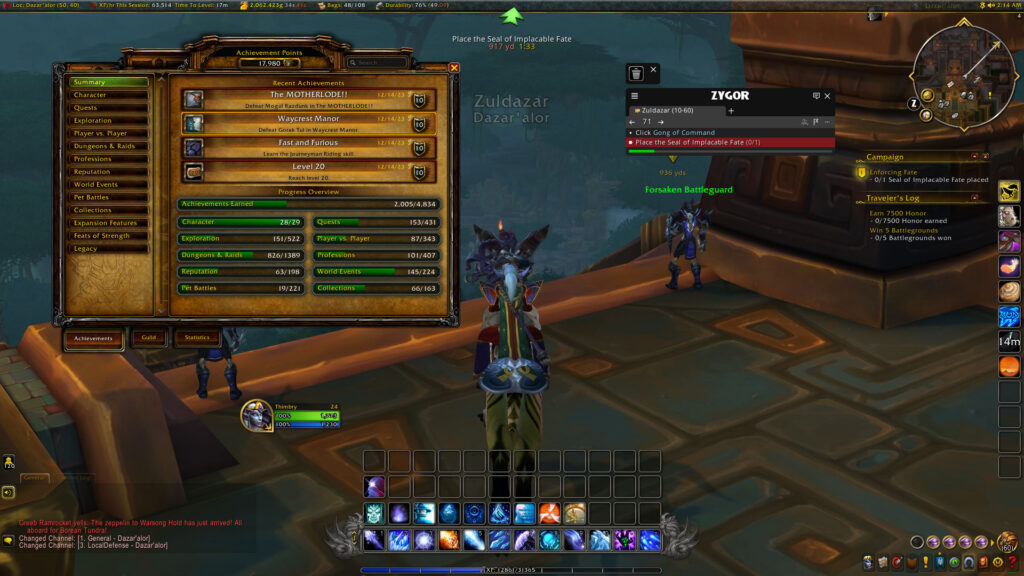
Creativity and Self-Expression
WoW is not merely a game; it’s a canvas for creativity and self-expression. Players can customize their characters and modify their gear so it looks like how they want to. This creative aspect of the game allows individuals to express themselves in ways they might not have the opportunity to in their daily lives.
Engaging in creative pursuits has been linked to enhanced mental well-being. WoW provides a platform for players to unleash their imagination, fostering a sense of agency and personalization. From designing the perfect transmog (outfit) to creating machinima (videos), WoW empowers players to explore their creative potential within a supportive and appreciative community.
Challenges and Drawbacks
Addiction and Time Management
While WoW offers numerous mental health benefits, it is not without its challenges. One of the most significant concerns is the potential for addiction. The immersive nature of the game, coupled with its endless content, can lead some players to spend excessive amounts of time in Azeroth, neglecting real-world responsibilities.
Gaming addiction, often referred to as “gaming disorder,” has been recognized by the World Health Organization. Players need to establish healthy boundaries and prioritize real-life obligations to prevent the negative impact of excessive gaming on mental health.
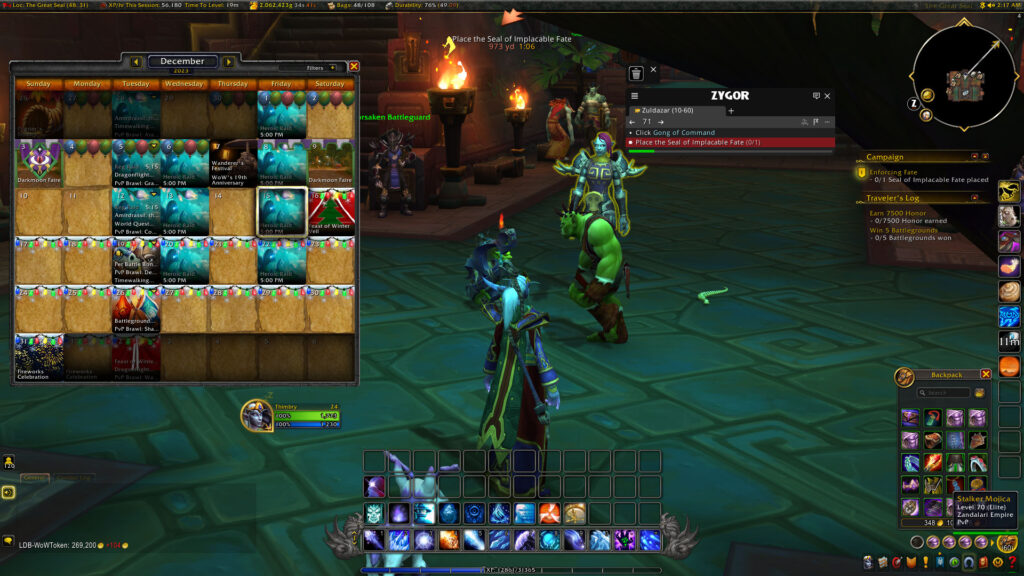
Comparison and Unrealistic Standards
The virtual world of WoW can sometimes perpetuate unrealistic standards, leading to feelings of inadequacy and comparison. In a game where players showcase their achievements, gear, and accomplishments, some individuals may feel pressured to meet certain expectations.
For those susceptible to social comparison, WoW can become a source of anxiety and low self-esteem. Players must remember that the game is meant to be enjoyable, and everyone progresses at their own pace. Balancing competition with a healthy perspective is essential to prevent negative impacts on mental well-being.
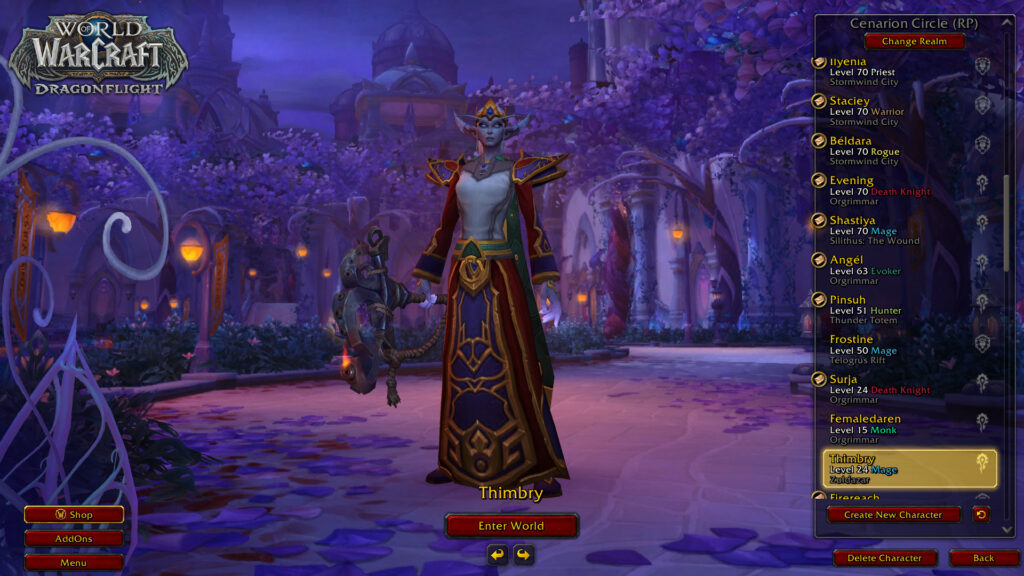
World of Warcraft, with its vast virtual landscape and vibrant community, has proven to be a double-edged sword in the realm of mental health. While it offers a unique space for social connection, stress relief, and personal achievement, it also poses the risk of addiction and the reinforcement of unrealistic standards.
As with any form of entertainment or escape moderation and self-awareness are key. WoW can be a valuable tool for enhancing mental well-being, but it should complement a balanced and fulfilling real-world life. By understanding and harnessing the positive aspects of Azeroth, players can navigate the World of Warcraft with mindfulness, enjoying the benefits while safeguarding their mental health.